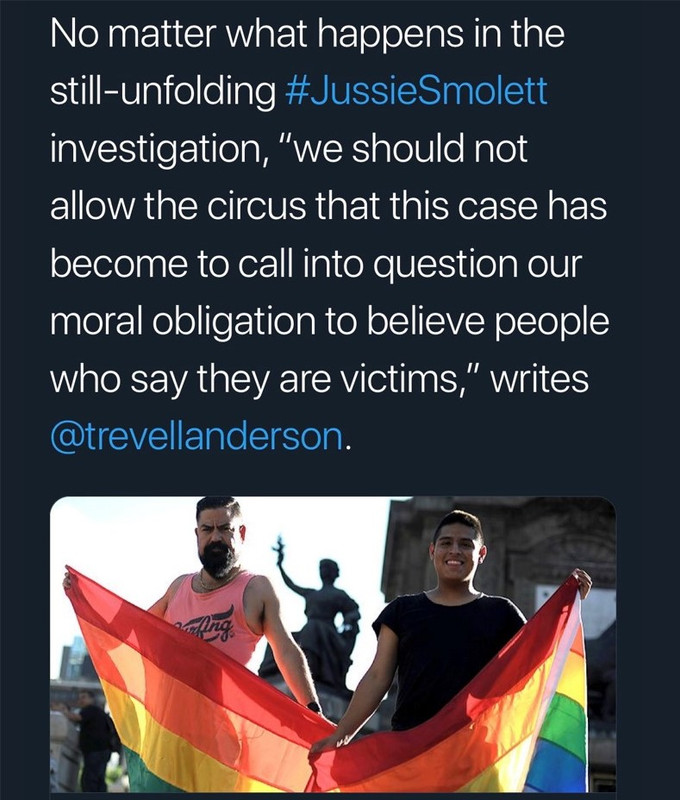When you're the victim of a horrible crime, people rally around you, support you, and pay attention to what you say. It's not hard to see why someone might want that, without all the bother of actually being a victim.
It's also extremely useful for promoting irrational prejudice and discrimination, which is what biological group advocacy is all about. Which is why biological group advocates have no objection to false accusations as long as they think the accuser has a superior biological group identity to the accused. Their only objection is to anyone caring about false accusations because of the possibility that might perhaps maybe reduce the presumption that inferior group identities are always guilty. Like, for example, the statement from trevellanderson that h4rm0ny quoted a few posts back.
Also, of course, once that sexist/racist/whatever-ist presumption of guilt is well established it's very unlikely that false accusers will be proven guilty or even suspected of it. The chance is higher when there's evidence, but it's still something a person with a higher status group identity will probably get away with. We're already at the stage where a non-trivial number of people with a non-trivial amount of power are publically stating their opposition to any trial or any investigation at all as long as the accuser has a higher status group identity than the accused - they want to go straight to summary conviction without a trial or even any investigation. trevellanderson's statement is typical of that attitude. It's not a new one by any means, e.g. accusations by christians against jews in many parts of Europe during a large part of the medieval period, accusations by "white" people against "black" people in segregationist USA, etc, etc. Fashionable ideas about where different group identities should be placed in the hierarchy change, but the idea itself sadly doesn't.
Then there's the idea of belonging, which is a powerful motivation for many people.
On top of that, in some cases there's a financial/power motivation as well. An actor, for example, could significantly enhance their career that way. It would hugely increase their media exposure and their chance of being hired for higher profile (and thus better paid) roles. A musician/performer likewise. A politician likewise. There doesn't have to be much money involved - there have been cases of people making a false accusation to get some time off work while being paid or to provide an excuse for being late for work.
It's actually quite simple. Their logic is the same as nearly every other criminal's: "I wont get caught". [..]
Yes. Hardly anyone would commit a crime if they thought they'd be caught. That's why sentencing isn't a very good deterrent by itself.




